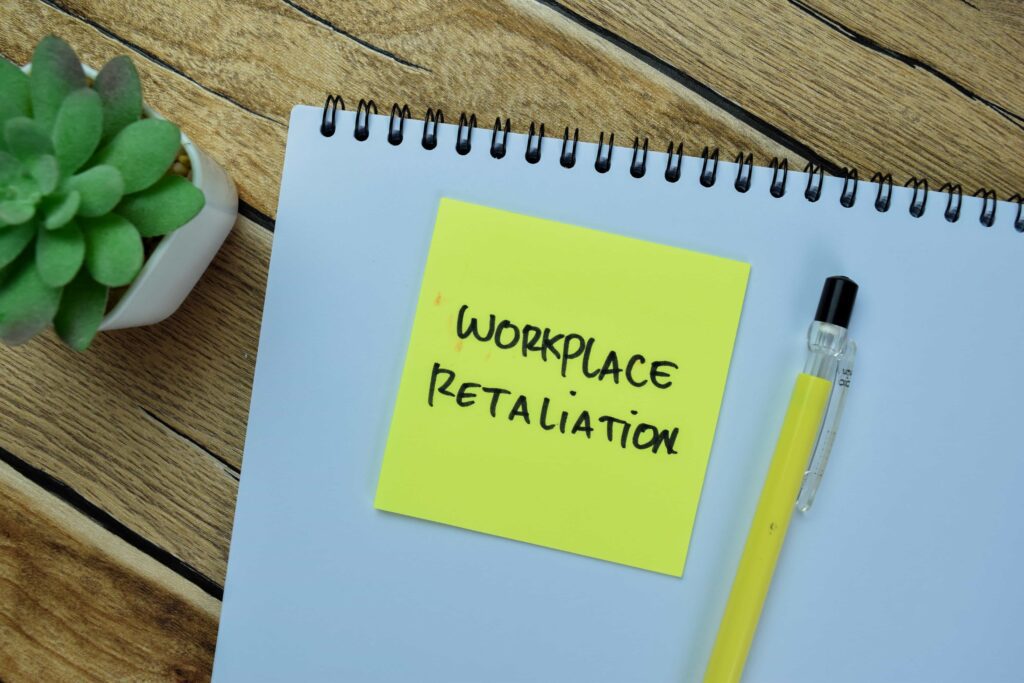
Employees can report workplace discrimination in Jupiter, FL, by filing a complaint with either the Equal Employment Opportunity Commission (EEOC) or the Florida Commission on Human Relations (FCHR).
While choosing between these two agencies may seem straightforward, the steps involved can quickly become complicated, especially without legal guidance.
Insights from Florida workplace discrimination attorneys at Brenton Legal can clarify your legal rights and options for pursuing compensation from those who violated the law.
Schedule a free case consultation online or at 954-639-4644 to further explore the following legal insights with experienced legal professionals.
Key Takeaways About How to Report Workplace Discrimination in Jupiter, FL: EEOC vs. Florida Commission on Human Relations Processes
- Florida Civil Rights Act (Chapter 760, Florida Statutes) prohibits employment discrimination based on race, color, religion, sex, pregnancy, national origin, age, handicap, and marital status, with enforcement through the Florida Commission on Human Relations.
- Equal Employment Opportunity Commission enforces federal anti-discrimination laws, including Title VII, ADA, and ADEA. Florida employees have 300 days to file charges due to the work-sharing agreement with FCHR.
- Cross-filing provisions under the work-sharing agreement between EEOC and FCHR allow employees to preserve rights under both federal and state law while avoiding duplicative investigations.
- Florida Whistleblower Act (§§ 112.3187-112.31895) and Private Sector Whistleblower Act (§ 448.102) provide additional protections for employees who report violations, with separate filing requirements and deadlines.
Understanding the Two-Track System: EEOC vs. FCHR
What is an EEOC Complaint for Jupiter, Florida Workplace Harassment Cases?
The EEOC is the federal agency responsible for enforcing anti-discrimination laws that apply to workplaces across the United States. Filing an EEOC complaint involves specific steps and requirements, including:
- Filing deadlines: Florida employees have 300 days from the date of the discriminatory act to file a charge with the EEOC. Missing this deadline can limit legal options.
- Covered employers: The EEOC handles cases involving employers with 15 or more employees, ensuring federal protections apply to a wide range of workplaces.
- Protected classes: The EEOC enforces laws prohibiting discrimination based on race, color, religion, sex, national origin, age (40 and older), disability, and genetic information.
- Filing process: Complaints can be submitted online, by mail, or in person. The EEOC requires detailed information about the employer, the discriminatory acts, and any supporting evidence.
- Investigation and mediation: After filing, the EEOC may investigate the claim, request documents, interview witnesses, or offer mediation as a resolution option.
The EEOC process is no easy road for those who have never taken on employees or their defense lawyers. Employment rights attorneys can help build a strong case supporting your complaint and seeking full compensation for the discrimination violations.
What is the FCHR and How Does It Handle Workplace Discrimination?
The FCHR is Florida’s state agency tasked with enforcing the Florida Civil Rights Act, which provides protections similar to federal laws but with some key differences. Filing an FCHR complaint involves the following:
- Filing deadlines: Employees have 365 days from the date of the discriminatory act to file a complaint with the FCHR, offering slightly more time than the EEOC.
- State-specific protections: The FCRA covers the same protected classes as federal law but may also address additional issues, such as marital status discrimination.
- Covered employers: The FCHR typically handles cases involving employers with 15 or more employees, aligning with federal standards.
- Filing process: Complaints can be filed online, by mail, or in person. The FCHR requires detailed information about the alleged discrimination and supporting documentation.
- Mediation and resolution: The FCHR offers mediation services to resolve disputes quickly. If mediation fails, the agency conducts an investigation and may issue a determination of reasonable cause.
The FCHR process provides additional protection for Florida employees, particularly in cases where state-specific remedies may apply. Legal professionals can help identify the most appropriate approach for pursuing claims under Florida law.
EEOC Filing Process and Timeline
In Florida, employees have 300 days from the date of the discriminatory act to file a charge with the EEOC. Key steps in the EEOC filing process include:
- Meeting filing deadlines: Employees must act within 300 days to preserve their rights under federal law. Missing this window can close the door to legal remedies.
- Providing all information required: A charge must include the employer’s details, a description of the discriminatory acts, and the protected characteristics involved. Specific dates, witness names, and supporting evidence strengthen the case.
- Understanding how to file: Charges can be submitted online, by mail, or in person. Completing the required forms accurately is essential to avoid delays or complications.
- Employer notification: After filing, the EEOC notifies the employer within 10 days and begins its investigation.
- Investigation and mediation: The EEOC may gather evidence, interview witnesses, or offer mediation to resolve the issue. Mediation can be effective in some cases, but not all disputes are suitable for this approach.
- Right to Sue letter: If the EEOC does not resolve the case, it may issue a Right to Sue letter, which allows the employee to pursue a federal lawsuit within 90 days.
The EEOC process is not just about filing forms. It’s about building a strong case that can stand up to scrutiny. If you are concerned about your ability to effectively complete any stage of the legal process, speak with a Florida employment rights law firm to clarify your next steps.
FCHR Complaint Process and Advantages
The Florida Commission on Human Relations (FCHR) provides a state-level pathway for addressing workplace discrimination, offering protections under the Florida Civil Rights Act (FCRA) that can complement or extend beyond federal laws.
Navigating this process effectively often requires the guidance of legal professionals who understand the nuances of Florida’s anti-discrimination statutes.
Key aspects of the FCHR complaint process include:
- Filing deadlines: Employees have 365 days from the date of the discriminatory act to file a complaint. Legal professionals can advise on the next steps to take before the statute of limitations passes and employees are left without legal recourse.
- How to file: Filing a complaint involves submitting detailed information about the employer, the discriminatory acts, and supporting evidence. Attorneys can assist in preparing this documentation to avoid errors or omissions that could weaken the case.
- State-specific protections: The FCRA covers the same protected classes as federal law, but may also address additional issues like marital status discrimination. Legal professionals can identify how these state-specific protections apply to your situation.
- Mediation services: The FCHR offers mediation to resolve disputes quickly, but not all cases are suitable for this approach. Attorneys can evaluate whether mediation is the right strategy or if a formal investigation is necessary.
- Determinations and remedies: If mediation fails, the FCHR investigates the complaint and determines whether reasonable cause exists. Legal professionals can advocate for employees during this process, ensuring their rights are fully represented.
The FCHR process can provide faster resolutions and remedies tailored to Florida’s legal framework, but it may require experienced legal guidance to avoid missteps that could jeopardize the case outcome.
Documentation: The Foundation of Strong Harassment and Discrimination Cases in Jupiter, FL
Legal professionals can guide you in gathering and organizing the evidence needed to strengthen your case. Key elements of effective documentation include:
- Detailed records: Record every incident of discrimination, including dates, times, locations, individuals involved, and specific details of what occurred. These records provide a clear timeline of events.
- Supporting evidence: Emails, text messages, performance evaluations, and witness statements can substantiate your claims. Attorneys can help identify which evidence will have the most impact.
- Photographic proof: Take photos of offensive materials, such as discriminatory postings or graffiti that violates state or federal workplace discrimination regulations.
- Medical records: If discrimination has affected your physical or mental health, keep records of doctor visits, prescriptions, or counseling sessions to demonstrate the impact.
- Company policies: Employee handbooks, internal complaints, and company policies often reveal inconsistencies or failures to address discrimination. Legal professionals can analyze these documents to uncover patterns of misconduct.
Effective documentation is not just about collecting evidence. It’s about presenting it in a way that supports your case and strengthens your position. Attorneys ensure that every piece of evidence is used strategically to protect your rights.
Protected Classes Under Florida and Federal Law
Federal and Florida laws protect employees from workplace discrimination based on:
- Protected characteristics: Florida law protects race, color, religion, sex, national origin, age (40 and older), disability, and marital status. Federal laws cover similar categories, with recent expansions to include sexual orientation and gender identity.
- Pregnancy discrimination: Employers must treat pregnancy-related conditions the same as other temporary disabilities. Florida law may offer additional remedies in certain cases.
- Religious accommodations: Employers must provide reasonable accommodations for religious practices, such as flexible scheduling or dress code modifications, unless doing so creates undue hardship.
Legal professionals can help you understand how these protections apply to your situation and advise on the next legal steps to hold discriminatory employers accountable for their actions.
Retaliation: The Secondary Violation

Retaliation often adds to the harm caused by workplace discrimination. Employers who retaliate against employees for filing complaints or participating in investigations violate both federal and Florida laws. Proving retaliation requires a clear strategy. Key aspects of retaliation claims include:
- Forms of retaliation: Retaliation can include termination, demotion, increased scrutiny, undesirable reassignments, or exclusion from opportunities.
- Legal standards: The law focuses on whether the employer’s actions would discourage a reasonable employee from filing a complaint. Even minor actions can have a significant impact.
- Documenting retaliation: Keep detailed records of changes in treatment following your complaint. Attorneys can connect these actions to the original complaint, strengthening your case.
Retaliation claims require careful documentation and a clear understanding of legal standards. Attorneys ensure that workplace retaliation does not go unchallenged and that your rights are protected.
Mediation vs. Investigation: Choosing the Right Path
When addressing workplace discrimination, employees often face a choice between mediation and formal investigation. Deciding which path to take depends on the specifics of your case, and legal professionals can help you evaluate appropriate legal options.
Key considerations for mediation and investigation include:
- Mediation benefits: Mediation offers a faster, more confidential resolution and can result in tailored remedies like monetary settlements or policy changes. However, it requires both parties to participate in good faith.
- When to investigate: Cases involving severe harassment, systemic discrimination, or employers with a history of violations may benefit from the public scrutiny of a formal investigation.
- Flexibility: Choosing investigation over mediation doesn’t rule out later settlement discussions. Many cases settle during the investigation process as evidence develops.
Attorneys assess each approach’s strengths and weaknesses, ensuring that you pursue the path most likely to achieve a favorable outcome.
Cross-Filing: Preserving All Options
Cross-filing with the EEOC and FCHR allows employees to:
- Protect rights: Cross-filing allows employees to pursue remedies under federal and state law, ensuring no legal options are overlooked.
- Create work-sharing agreement: The EEOC and FCHR coordinate investigations to avoid duplication, but employees must indicate their intent to cross-file when submitting complaints.
- Gain strategic legal advantages: Federal and state remedies differ. Some cases may proceed more effectively under one system than the other. Legal professionals can help determine the most advisable approach for your case.
Cross-filing is not just about checking a box. It’s about maximizing your chances of a successful resolution. Attorneys navigate the complexities of this process to protect your rights and ensure your case is handled effectively.
How To Report Workplace Discrimination in Jupiter, Florida FAQs
Can I file complaints with both agencies simultaneously?
Through cross-filing, which preserves rights under both federal and state law. The agencies coordinate through their work-sharing agreement to avoid duplicate investigations while maintaining separate jurisdictions.
What happens if I miss the filing deadline?
Missing filing deadlines typically prevent pursuing claims through agency processes, though limited exceptions exist for continuing violations or equitable tolling in extraordinary circumstances. Speak with a lawyer to keep your case on track and meet all filing deadlines.
What remedies are available if discrimination is proven?
Depending on the specific circumstances and applicable law, successful discrimination cases can result in back pay, front pay, reinstatement, policy changes, training programs, attorneys’ fees, and compensatory damages for emotional distress.
Explore Your Legal Options After Florida Workplace Discrimination With Benton Legal
Workplace discrimination cases involve complex legal procedures with strict deadlines that can significantly impact outcomes.

The choice between EEOC and FCHR processes, documentation requirements, and strategic decisions about mediation versus investigation all influence the likelihood of successful resolution.
Are you ready to take action against workplace discrimination and protect your rights under Florida and federal law? Contact Brenton Legal online at 954-639-4644 for a free, confidential consultation about your situation.

